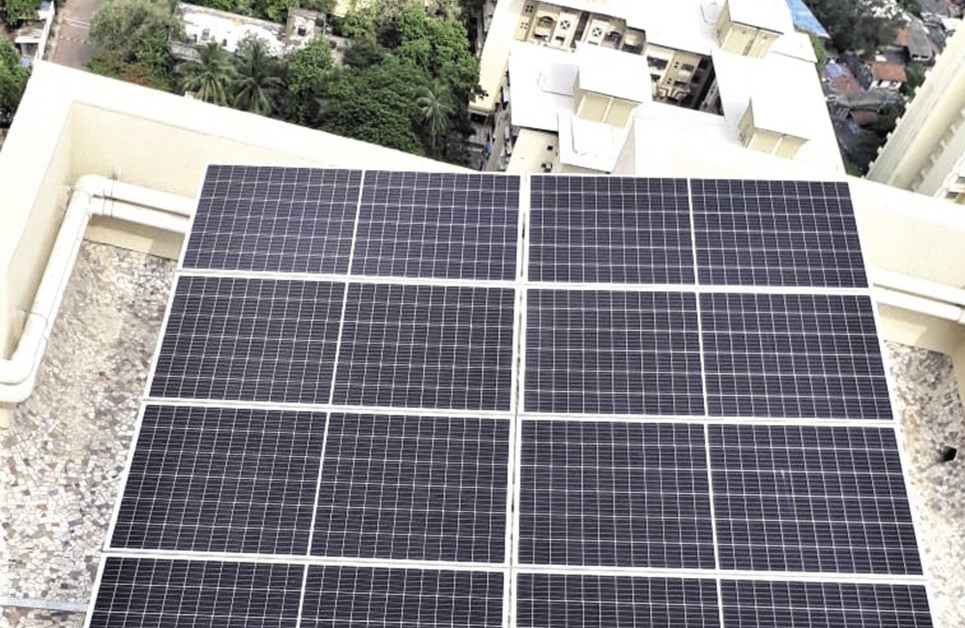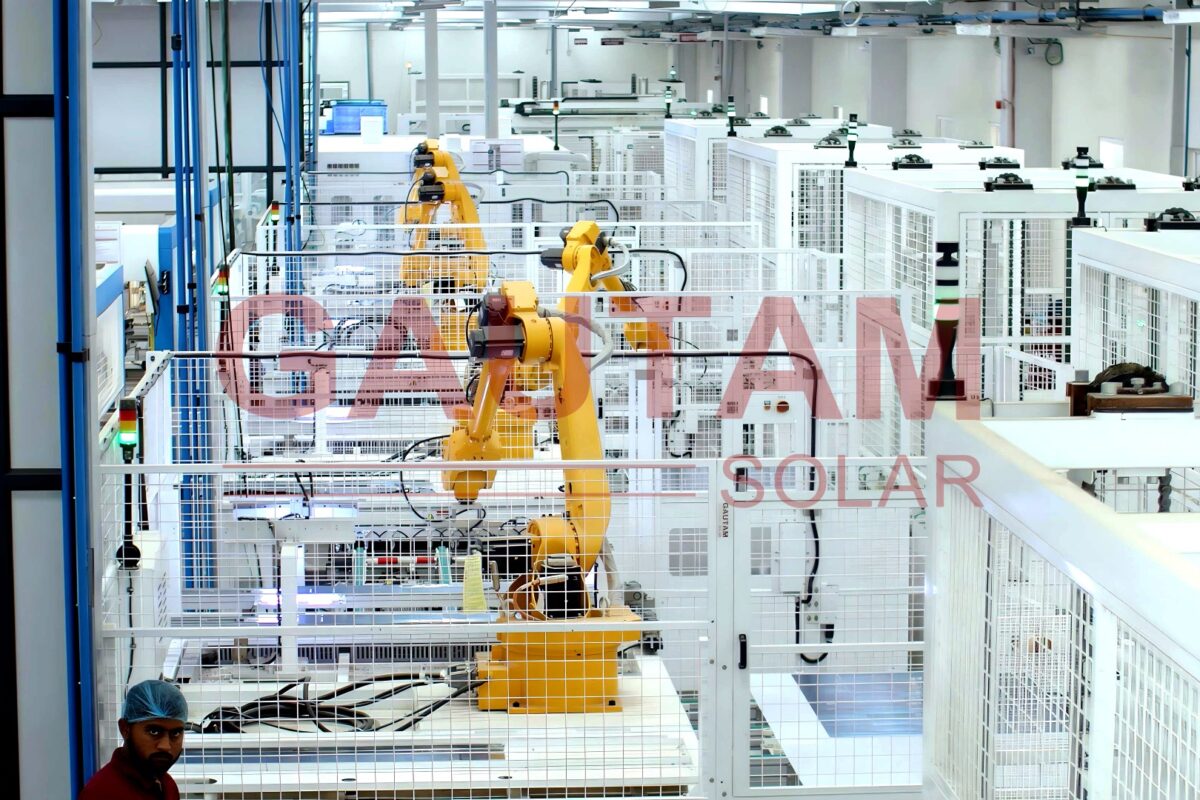India will fall well short of its installed solar capacity target of 100GW by 2022, mainly due to the slow uptake of rooftop solar, according to a new report by JMK Research and the Institute for Energy Economics and Financial Analysis (IEEFA).
The report highlights rooftop solar as the pain point in India’s journey to 100GW. It projects that by December 2022, there will be a 25GW shortfall in meeting the 40GW rooftop solar target, compared to just 1.8GW in the utility-scale solar target.
As of December 2021, India had installed a cumulative solar capacity of 55GW, with grid-connected utility-scale projects contributing 77% (42.3GW) and the balance coming from grid-connected rooftop solar (20%) and mini or micro off-grid projects (3%).
The nation is expected to add another 19GW of solar capacity in 2022 – 15.8GW from utility-scale and 3.5GW from rooftop solar. This will take the cumulative utility-scale PV capacity to 58.2GW and cumulative rooftop solar capacity to 15GW by December end.
“Even with this capacity addition, about 27% of India’s 100GW solar target would be unmet,” said report co-author Jyoti Gulia, founder, JMK Research.
On the current trajectory, the report finds India’s solar target of 300GW by 2030 will be off the mark by about 86GW.
“Utility-scale solar capacity addition is on track. India is set to achieve nearly 97% of its 60GW target,” said Gulia. “This makes it imperative to have a more concerted effort towards expanding rooftop solar.”
Challenges
The report states headwinds ranging from pandemic-induced supply chain disruption to deeply rooted policy restrictions have impeded the growth of India’s rooftop solar (onsite solar power) and open-access solar (offsite solar) installations.
“The anticipated 27GW shortfall from the 2022 solar target can be attributed to a string of challenges which are slowing overall progress on renewable energy targets,” said co-author Vibhuti Garg, Energy Economist and Lead India, IEEFA.
These challenges include regulatory roadblocks, net metering limits, the twin burdens of basic customs duty (BCD) on imported cells and modules and issues with the Approved List of Models and Manufacturers (ALMM), unsigned power supply agreements (PSAs), banking restrictions, financing issues, delays in or rejection of open-access approval grants, and the unpredictability of future open-access charges.
“Central and state government policies and regulations must be aligned to support the solar sector overall, and especially the ailing rooftop and open access segments of the market,” said co-author Akhil Thayillam, senior research associate, JMK Research.
Recommendations
The report proposes short- and long-term measures to get India back on track to meet solar targets.
Short-term measures include uniform policies to be applied nationally for at least the next five years, consistent regulations for net metering and banking facilities, and revocation of restrictions on the banking of renewable energy at least until rooftop and open-access state targets are achieved.
Long-term measures include stricter enforcement of the renewable purchase obligation; improved financial health, and potentially privatization, of distribution companies (discoms); reduced cross-subsidy surcharge for commercial and industrial consumers; and a capital subsidy for battery energy storage systems.
“In rooftop solar, state-level efforts such as Gujarat’s Surya Scheme need to be replicated by other states in the short-term to help in boosting capacity,” said Gulia.
“It is also likely that the government, in the short-term, will push aggressively for expediting solar capacity addition to achieve the 100GW target by 2022 by re-allocating some of the unmet rooftop target to utility-scale generation.”
This content is protected by copyright and may not be reused. If you want to cooperate with us and would like to reuse some of our content, please contact: editors@pv-magazine.com.









1 comment
By submitting this form you agree to pv magazine using your data for the purposes of publishing your comment.
Your personal data will only be disclosed or otherwise transmitted to third parties for the purposes of spam filtering or if this is necessary for technical maintenance of the website. Any other transfer to third parties will not take place unless this is justified on the basis of applicable data protection regulations or if pv magazine is legally obliged to do so.
You may revoke this consent at any time with effect for the future, in which case your personal data will be deleted immediately. Otherwise, your data will be deleted if pv magazine has processed your request or the purpose of data storage is fulfilled.
Further information on data privacy can be found in our Data Protection Policy.